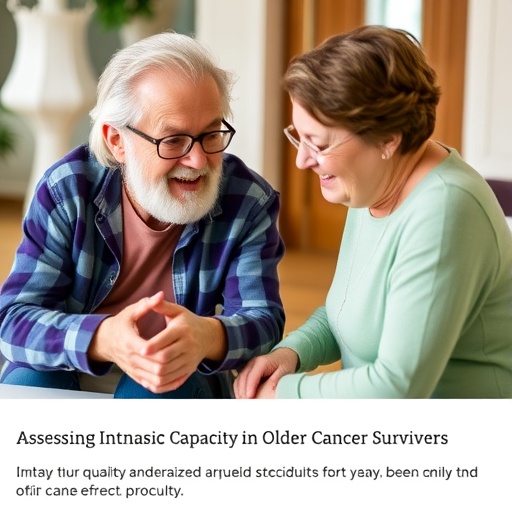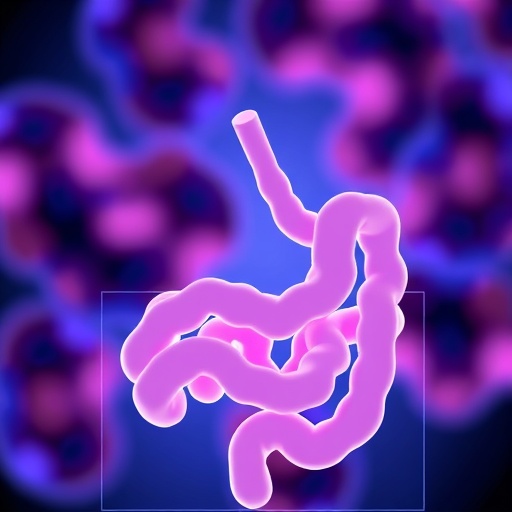In a groundbreaking study led by a team of researchers, the intricate relationship between intrinsic capacity among community-dwelling older adults and cancer survivors has been explored, shedding light on a topic critical to public health. This examination, published in the European Geriatric Medicine Journal, presents a comparative analysis that highlights the varying levels of intrinsic capacity—essentially an individual’s physical and mental resilience—across these two distinct yet interconnected populations.
The research focuses on defining intrinsic capacity as a concept that encompasses cognition, mobility, emotional well-being, and the capacity to perform daily activities efficiently. This multi-dimensional approach allows for a holistic assessment of elderly individuals’ ability to manage their health and utilize healthcare resources effectively. The importance of understanding intrinsic capacity cannot be overstated, as it serves as a barometer for the overall well-being of older adults, especially those recovering from life-altering conditions such as cancer.
In this study, Bandeira and colleagues carefully selected a diverse sample of participants, representing various socio-economic backgrounds and levels of physical and mental health. The participants included older adults who had never been diagnosed with cancer as well as survivors who were either in the midst of recovery or had completed their treatment. This dual-group approach provides a clearer understanding of how cancer and its treatment may impact intrinsic capacity in later life.
Key findings from the research indicate that cancer survivors often face unique challenges that may impede their intrinsic capacity. These difficulties might stem from the physical side effects of treatment, such as fatigue, pain, and psychological stress, which can significantly affect mobility and cognitive functions. Comparative analysis highlighted that while many older adults manage to maintain a strong intrinsic capacity, cancer survivors exhibited lower levels of resilience, primarily due to the compounded effects of their illness and its treatment.
Further analysis revealed that socio-economic status played a crucial role in determining intrinsic capacity levels across the groups. Older adults with higher income and better access to healthcare resources generally reported enhanced intrinsic capacity, suggesting that socioeconomic factors heavily influence health outcomes in older populations. Conversely, cancer survivors from lower socio-economic backgrounds faced additional barriers, compounding their health challenges and diminishing their overall intrinsic capacity.
Interestingly, the study also examined the concept of social engagement and its strong association with intrinsic capacity. Participants who actively engaged with family and community activities were shown to maintain better physical and mental health. This correlation is significant, underlining the need for community support systems that foster social interaction, which can ultimately help improve health outcomes for older adults and cancer survivors alike.
In contemplating interventions, the researchers advocate for enhancing community programs that focus on both physical and mental health. This includes exercise regimens tailored for older adults and cognitive health programs designed to stimulate mental functions. The promise of such programs lies not only in their potential to enhance intrinsic capacity but also in their ability to create supportive environments where older adults feel valued and connected.
Moreover, the research stresses the importance of healthcare practitioners being aware of the varying levels of intrinsic capacity when devising treatment plans for older patients, especially those with a history of cancer. By personalizing healthcare approaches based on an individual’s intrinsic capacity, medical professionals can facilitate more effective care and adjust interventions to meet the specific needs of their patients.
The findings from this study also open the doors to future research avenues, particularly in exploring interventions that can mitigate the impact of cancer treatment on intrinsic capacity. Investigating methodologies that promote physical activity, enhance mental capabilities, and provide emotional support will be crucial in improving the quality of life for older adults.
In conclusion, the comparative study led by Bandeira et al. highlights significant disparities in the intrinsic capacity of community-dwelling older adults versus cancer survivors. The implications of these findings extend beyond academic interest; they call for practical applications in healthcare policies and community support systems aimed at fostering resilience among older populations. By addressing the needs of both groups, we can not only enhance their quality of life but also promote healthier aging in a society that increasingly values the contributions of its older citizens.
Such critical examinations into the intrinsic capacity can potentially guide future public health initiatives, ensuring that all elderly individuals—regardless of their health histories—receive the care and support necessary to thrive. This study not only underscores the fragility of health in the face of chronic conditions like cancer but also highlights the resilient spirit of older adults who strive for a fulfilling life, underscoring the vital importance of holistic healthcare solutions tailored to their unique circumstances.
Subject of Research: Intrinsic capacity in community-dwelling older adults and cancer survivors
Article Title: Intrinsic capacity in community-dwelling older adults and cancer survivors: a comparative study
Article References:
Bandeira, A.C.L., Granai, M.V.K., Almeida, O.L.S. et al. Intrinsic capacity in community-dwelling older adults and cancer survivors: a comparative study.
Eur Geriatr Med (2025). https://doi.org/10.1007/s41999-025-01341-6
Image Credits: AI Generated
DOI: 10.1007/s41999-025-01341-6
Keywords: Intrinsic capacity, older adults, cancer survivors, health outcomes, socio-economic status, community support, resilience, holistic health strategies.
Tags: assessing emotional well-being in cancer survivorscancer survivors and health outcomescognitive resilience in elderly populationscomparative analysis of older adults’ healthEuropean Geriatric Medicine research findingshealthcare resource utilization among older adultsholistic assessment of elderly healthintrinsic capacity in older adultsmulti-dimensional health assessment in geriatricsphysical and mental well-being in seniorspublic health implications of cancer survivorshipsocio-economic factors in aging populations





